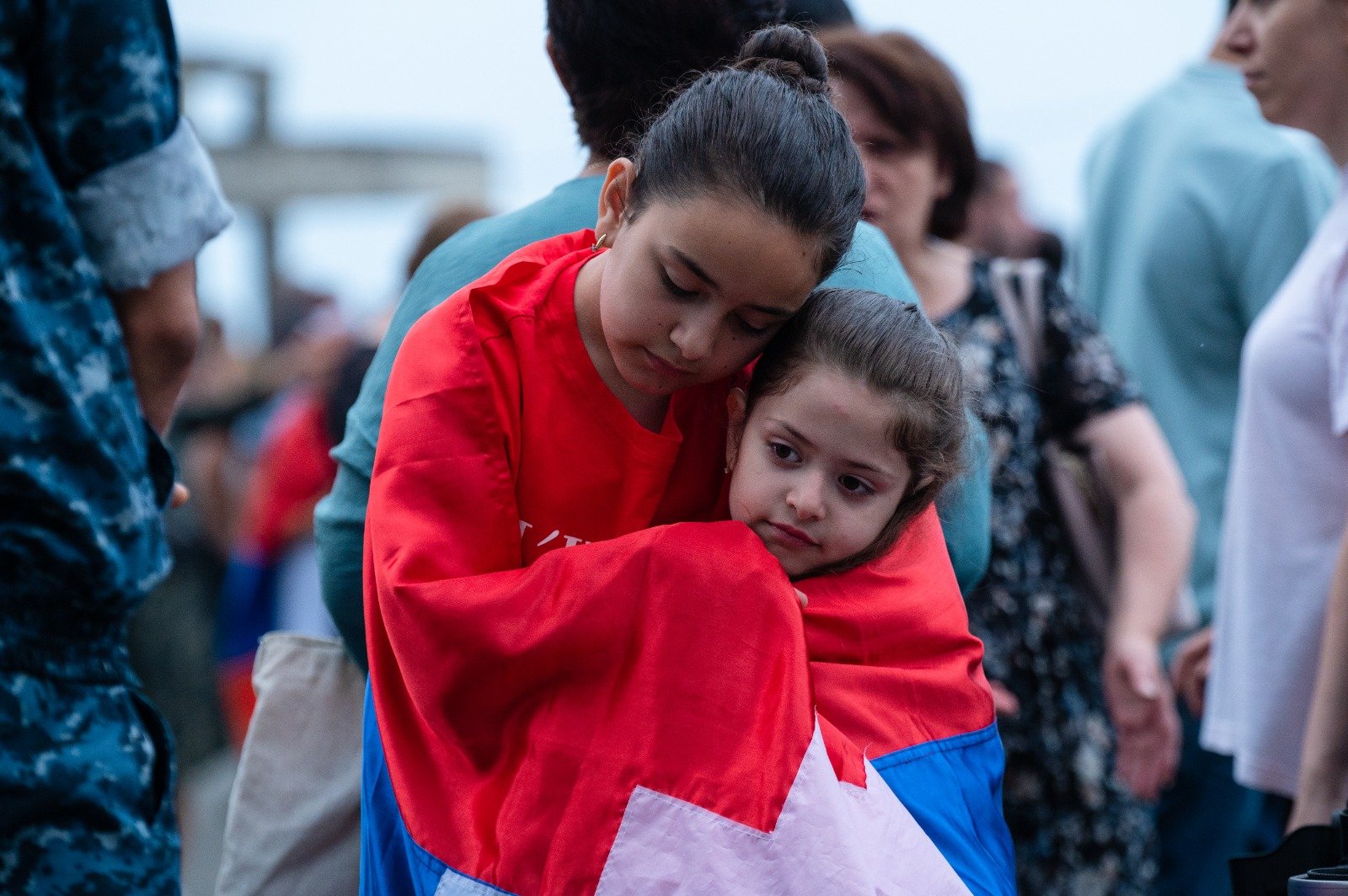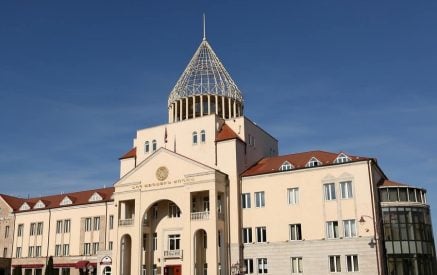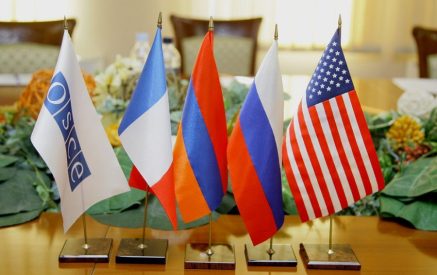On the occasion of the 2nd anniversary of the International Court of Justice’s order of November 17, 2023, in an article for French leading newspaper Le Monde, 23 parliamentarians from several countries call for respect for international law and for the return of the Armenians of Nagorno-Karabakh—something that has still not taken place despite international decisions in that direction. The full translation of the article is provided below:
“On 17 November 2023, the International Court of Justice issued a ruling ordering Azerbaijan to promptly ensure the safe, dignified, and unimpeded return of the displaced Armenians of Nagorno-Karabakh, the protection of their property, and the preservation of their heritage. This decision, taken in the name of international law, prevails over any political consideration, treaty, or bilateral agreement. And yet, two years later, it remains a dead letter.
No action has been undertaken to allow the displaced to return to their homes, protect their rights, or document the state of the towns and villages they left. The property and cultural heritage of Armenians continue to be destroyed, altered, or reassigned in Nagorno-Karabakh, with the aim of erasing all traces of their presence and memory. This passivity of international bodies and states is troubling—especially at a time when other populations around the world face similar threats. Will inaction serve to condone what international law has clearly defined as a crime against humanity and ethnic cleansing?
Let us recall the facts. On 19 September 2023, after nine months of a total blockade aimed at emptying the region of its inhabitants, Azerbaijan launched a decisive military offensive in the Nagorno-Karabakh enclave. Within a few days, the last 120,000 Armenians of the territory—exhausted by famine, deprivation, and lack of care, and terrified by acts of violence committed against civilians—were forced into exile.
Read also
To this day, no political response commensurate with the gravity of the crime has been provided. The reality of power dynamics cannot suspend the application of international law: the right of the inhabitants of Nagorno-Karabakh to return transcends geopolitical considerations and remains a collective responsibility recognized by international conventions.
Confusion between Peace and Injustice
International law is clear: Article 12 of the International Covenant on Civil and Political Rights recognizes everyone’s right to enter their own country. This right does not depend on formal nationality, but on a deep and lasting connection to a land, a culture, a memory. This right does not belong to states, but to individuals. No authority—through inaction or renunciation—may deprive the rightful holders of it.
The confusion between peace and injustice lies at the heart of the peace agreement between Armenia and Azerbaijan, signed on 8 August in Washington. Presented as a historic text. This agreement, nonetheless, includes neither the return of forcibly displaced persons, nor the release of prisoners of war, nor the protection of Armenian cultural heritage. In effect, it validates the consequences of ethnic cleansing, while strengthening the strategic position of Baku and its allies. What kind of peace, built upon bargains and the erasure of law, can endure?
And above all, what Pandora’s box are democracies opening when they remain silent in the face of a crime of such magnitude? What value does international law hold if they are the first to sweep aside such an obvious violation? The question of the Armenians of Nagorno-Karabakh is not an issue of borders or ethnicity, but of the universality of human rights and the credibility of those who claim to defend them.
Denying the rights of these forcibly displaced people simply because they are Armenian, or leaving it entirely to the Republic of Armenia to defend them, would mean rejecting the very idea of universality of human rights. Human rights are not political stances, they are obligations that apply to all states and rise above any alliance. This is why we, parliamentarians from various countries, affirm that defending the right of return of the Armenians of Nagorno-Karabakh, protecting their heritage, and ensuring justice for the victims constitute a shared responsibility—one grounded in our values and essential for the preservation of peace and justice in the world.
Within national parliaments as well as in the European Parliament, converging reflections are emerging so that the commitments enshrined in international conventions may finally take concrete form: guaranteeing the right of return of the displaced, protecting threatened cultural heritage, and prosecuting those responsible for the violations committed. Initiatives are being organized to uphold this shared responsibility and to restore respect for the law at the center of political actions.
Justice begins where consciences refuse to look away. No peace can be born of forgetting.”
The signatories:
European Parliament
1. François-Xavier Bellamy, Member of the European Parliament (France), LR;
2. Nathalie Loiseau, Member of the European Parliament (France), Horizons;
3. Murielle Laurent, Member of the European Parliament (France), PS;
4. Loucas Fourlas – Member of the European Parliament (Cyprus), Christian Democrat;
5. Geadis Geadi, Member of the European Parliament (Cyprus), European Conservatives and Reformists;
6. Costas Mavrides, Member of the European Parliament (Cyprus), Democratic Party;
France
7. Étienne Blanc, French Senator for the Rhône, LR;
8. Gilbert-Luc Devinaz, French Senator for the Rhône, PS;
9. Emmanuel Mandon, French Deputy for the Loire, Les Démocrates;
10. Alexandra Martin, French Deputy for Alpes-Maritimes, LR;
11. Isabelle Santiago, French Deputy for Val-de-Marne, PS;
Switzerland
12. Erich Vontobel, Swiss National Councillor, Federal Democratic Union;
13. Alex Farinelli, Swiss National Councillor, Liberal-Radical Party;
14. Stefan Müller-Altermatt, Swiss National Councillor, The Centre;
15. Nicolas Walder, Swiss National Councillor, The Greens;
16. Carlo Sommaruga, Member of the Swiss Council of States, Swiss Socialist Party;
Denmark
17. Sjúrður Skaale, Denmark’s Parliament Member, Social Democratic Party;
18. Anders Vistisen, Denmark’s Parliament Member, Danish People’s Party;
Cyprus
19. Marios Mavridis, Member of the House of Representatives of Cyprus, Democratic Party;
Belgium
20. Karl Vanlouwe, Member of the Belgian Senate;
Argentina
21. Mónica Fein, Deputy of Argentina, Socialist Party;
22. Esteban Paulón, Deputy of Argentina, Socialist Party;
Uruguay
23. Gerardo Sotelo, Deputy of Uruguay, Independent Party;



























































